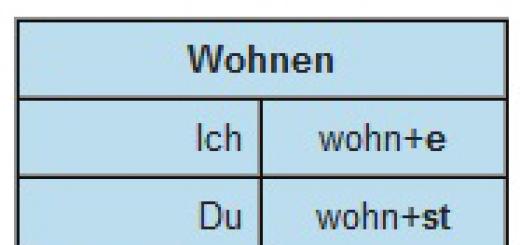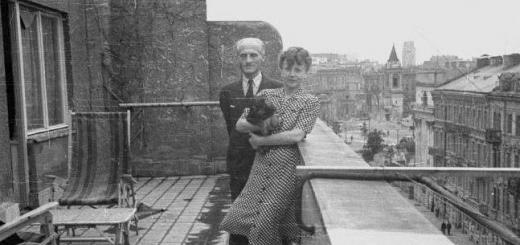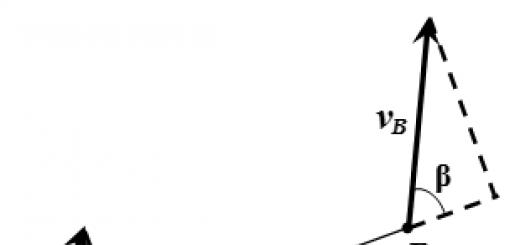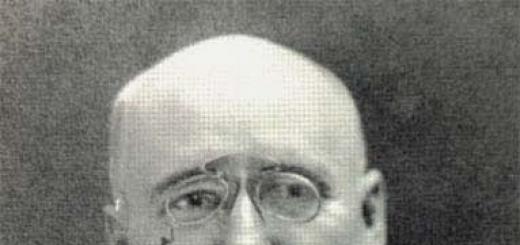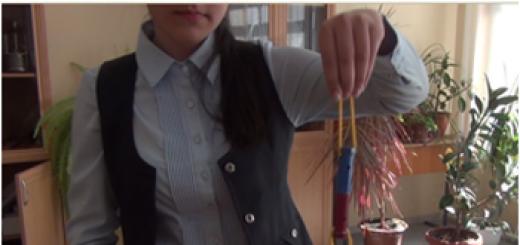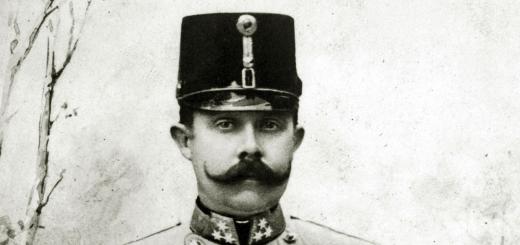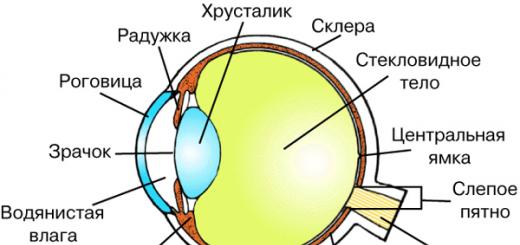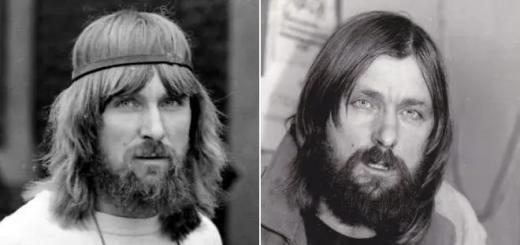Once upon a time, I had simply impenetrable negative attitudes about making money, finding a job, and relationships with my bosses. It seemed to me that my city was small, gloomy and conservative, where finding a job was not so easy. All my close circle convinced me (and I willingly believed them) that finding a good job with a decent salary is a rare, incredible success. People get into such positions either by having connections and extensive connections, or by being a seasoned specialist with many years of experience, with hundreds of certificates and a thousand diplomas officially confirming their level of experience. The rest get penny salaries, no vacations, no sick leave, and a wonderful office work schedule from 8 a.m. to infinity.
It’s not that I liked the picture described and caused violent bouts of enthusiasm, not at all. The problem is that it was the ONLY picture in my head, and I sincerely believed that there were simply no other options. I sincerely believed that there was no work in the city, that no one would want to get involved with a young specialist who had just received a bachelor’s degree. All this was my everyday, indestructible picture of the world. The reality of my individual bubble. I directed my intention and acted according to my ideas about reality. Is it any wonder that all my negative expectations were completely justified?
I got a job in a rotten, rotting office that did not have any prospects. The salary was more than modest, and the bonus was the inability to go on study leave during the session (at that time I was still studying for a master’s degree). At the same time, those around me did not forget to remind me how lucky I was to find a job, and what a pity that they were unable to find a specialist with at least five years of work experience.
I began to suspect that something was going WRONG after talking with my classmates. I was surprised to discover that almost all of them received twice or even three times more than me. At the same time, no one tried to convince them that finding a job without a master’s degree and impressive experience is great happiness.
It took me a long time to realize that the position of my university classmates was not at all a matter of random luck and coincidence, but the result of a certain way of formed picture of the world. They believed that they were studying in a very popular specialty. Unlike me, they thought that getting a decent salary for a job well done was a normal state of affairs, and not the ultimate dream. They were in no hurry to grab the first job that came their way, did not feel humiliated by petitioners during the interview, and were not afraid to ask for decent working conditions. Accordingly, the result they had was significantly different from what I received.
But realizing what is happening and changing your thinking are far from the same thing. My picture of the world took many, many years to form, and at first it was very difficult to even imagine, just to admit in my head, the possibility of realizing OTHER options for the development of events. At that moment, I was helped a lot by teaching me how to work with intention. She methodically “caught me by the ear” when I once again tried to fall down and start drawing the usual picture. She answered all the tricky questions, removed unnecessary doubts and helped build a “new reality”, where new opportunities existed instead of old restrictions. In the end, I succeeded. I got a job in a good company, where management treated their employees with respect, and the salary level was slightly higher than the city average. The funny thing is that this company was reputed to be one of “those” ones that don’t hire anyone just like that, without cronyism and connections. And I got a job there quite easily, just by sending my resume and going through a fairly comfortable interview...
What I want to say once again: the world in which a person lives depends mainly on what this person thinks about himself and, in fact, about his world. In what place to put yourself and what to bestow - benefits or problems, victories or complexes - this is a personal decision. Whatever you want, you will get. By the way, if we talk about esotericism... all magic, all energy techniques and spiritual practices are based on this principle. Believe my experience, this is true. True, everything is more complicated there... and much more serious than in our everyday world.
If a person begins to realize all of the above, if he sees himself as part of a single system that embraces all people, if he passes this knowledge on to others and builds the environment as a support on the path, then he begins to gradually develop in himself a truly strong and integral desire - to acquire a natural property altruism. The path to such a desire is a challenge in itself; it fills our life with multifaceted content, giving it the deepest meaning. At the stage of its final formation, altruistic desire opens up a new reality for a person.
Before describing this reality and the sensations experienced by a person in it, it is necessary to clarify the general mechanism of perception of reality. At first glance, such an excursion may seem unnecessary and pointless. Who doesn't know what reality is? Reality is everything that surrounds us, all visible objects, walls, houses, people, the Universe as a whole. Reality is something you can touch, hear, taste, smell, and so on.
However, the situation is not as simple as it may seem. The greatest minds of mankind devoted a lot of effort to this issue, trying to build a scientific approach to the problem of perception of reality. The modern ideas that most people now hold developed in stages.
The classical approach, presented by Newton, was the assertion that the world exists on its own, without connection with man. It doesn’t matter at all whether a person perceives it or not, in other words, whether he lives in the world or not - one way or another, the world takes place, and the form of its existence is determined.
Subsequently, the development of natural sciences made it possible to consider the picture of the world as something perceived by the senses of living beings. It turned out that their perceptions are not equivalent. For example, the facet vision of a bee or dragonfly is based on a mosaic of images. These insects receive visual information from numerous segments of the eye. A dog's worldview consists mainly of different smells. Einstein discovered the phenomenon that changing the speed of the observer or the observed object creates a completely different picture of reality on the axes of space and time. This statement is fundamentally different from Newton's point of view.
For example, imagine a stick moving in space. What happens if we make it move at very high speed? According to Newton, whatever this speed is, the length of the stick will not change. According to Einstein, the stick will begin to shorten. Modern concepts have given rise to a more progressive approach to the issue of perception of reality, which is that the picture of the world depends on the observer: different properties, sensory organs and states of movement of observers lead to the fact that they perceive reality differently.
In the 30s of the last century, the principles of quantum mechanics were formulated, which revolutionized the scientific world. According to her statements, a person is able to influence the event he observes. In this case, the researcher can only ask one question: what do his measuring instruments show? There is no point in trying to study a process in isolation from oneself or objective reality as such. Discoveries in the field of quantum mechanics, as well as in a number of other areas, led to the formation of a modern scientific approach to the perception of reality: a person influences the world, and, as a result, influences his own worldview. The picture of reality lies somewhere in the middle between the properties of the observer and the object perceived by him.
Modern science is discovering that, in fact, the world has no pattern. “Peace” is a phenomenon felt by a person within himself and reflecting the degree of his similarity to the universal and all-encompassing external force of nature, which, as already mentioned, is absolutely altruistic. It is the degree of correspondence or discrepancy between one’s own properties and external natural altruism that appears to a person as a “picture of the world.” Thus, the picture of the surrounding reality completely depends on our internal properties, and we have the power to change it to the point where it becomes diametrically opposite.
To better understand the mechanism of our perception of reality, let’s imagine a person in the form of a box with five holes, symbolically corresponding to the senses. Inside this box a picture of the surrounding reality emerges.
Consider, for example, how the organ of hearing works. Sound waves entering the eardrum cause vibrations, which are transmitted to the auditory ossicles. As a result of this process, bioelectric impulses are sent to the brain, which translates them into certain sounds. All our measurements are carried out after irritation of the eardrum. The rest of the senses operate in a similar way.
In practice, we measure our internal reactions, and not any factors of external reality. The range of sounds we hear, the spectrum of light we see, etc. – depends on the characteristics of the abilities of our organs of perception. We are closed in our “box” and never know what is really happening outside of us.
The resulting signals from all sensory organs enter the “control center” located in the corresponding part of the brain, where the received information is compared with previous data stored in memory. Well, then, the information is projected onto a kind of “movie screen”, where a person is shown a picture of the world as if appearing before him. As a result, a person determines for himself where he is and what he should do.
During this process, what was previously unknown to us becomes something seemingly “known”, and a picture of “external reality” is formed in a person. However, in fact, we are not talking about external reality, but only about an internal image.
Take, for example, our vision, thanks to which the vast world spreads out before us in all its splendor. In fact, we see this picture only inside ourselves, in that part of our brain where a certain “photo camera” is located, which displays all the visual images we perceive. We don’t see anything from the outside, there’s just something like a mirror in our brain that reflects every object so that we observe it from the outside, in front of us.
Thus, the picture of reality is a consequence of the structure of human senses and information already deposited in our brain. If we had other senses, we would observe a different picture of the world. Perhaps what seems light to us today would look like darkness or something completely beyond the reach of human imagination.
In this regard, it should be noted that many years ago science found the ability to cause electrical stimulation in the human brain. In combination with the information available in memory, they create the feeling of being in a certain place and in a certain situation. In addition, we have learned to replace our senses with artificial devices, using electronic equipment. There is a whole range of hearing aids available, from amplifiers that compensate for hearing impairment to electrodes implanted in the ears of completely deaf people. Development of an artificial eye is already underway, and moreover, electrodes implanted in the brain replace audio information with visual information, that is, they change sounds into images. Here's another innovative technology being developed these days: implanting a miniature camera into the eye that converts light rays passing through the pupil into electrical impulses. Then, these impulses are sent to the brain, where they are translated into the visual range.
Undoubtedly, the day will come when we will fully master this area of technology, expand the range of perception of our natural sensors and begin producing artificial organs, if not the entire body. However, at the same time, in this case, the perceived picture of the world will remain exclusively internal.
Consequently, all our sensations are only internal reactions, unrelated to the surrounding reality. We cannot even say whether it exists, because the picture of the “external” world takes shape within us.
Nature program
The study of nature has revealed the conditions for the emergence and existence of life: for this it is necessary that every cell and every part of the system devote itself to the interests of the whole organism. However, the human community does not follow this rule, and this raises the question: how can we even exist? After all, the egoistic cell causes cancer and leads to the death of the entire body. However, we, being selfish parts of the overall system, still live!
The fact is that our present existence is not defined as “life” at all.
In fact, man differs from the other levels of nature in that he is divided into two stages:
First stage– this is the current stage in which each of us feels isolated from others, and therefore does not take them into account and tries to use them in our own interests.
Second stage- this is a corrected existence, when people act as parts of a single system, being in mutual love and bestowal, in perfection and eternity.
It is existence at the second stage that is called “life.” The current transitional stage aims to bring us to an independent breakthrough into a corrected and eternal state, into authentic life. We can define our present existence as an imaginary life or an imaginary reality, while the existence corrected in accordance with an altruistic intention will be recorded as an authentic life or true reality.
The true reality was initially hidden from us - in other words, we are naturally unable to perceive it, since a person perceives himself and the world in accordance with his own desire, with personal, inherent only internal properties. Today we do not feel that all people are united into a single whole - we do not feel it because the picture of such relationships seems unnatural to us, and even somewhat repulsive. The selfish desire for pleasure, imprinted in us from the first day, is not interested in such a union and does not allow us to discern the true state of affairs.
We are surrounded by countless details of reality that we do not perceive. Our mind serves egoistic desire and, at its direction, processes signals from the senses. As a result, we are not able to perceive what is not within the circle of interests of our egoism, which does not directly correlate with its benefit or damage. This is how our senses are programmed, and it is this calculation that underlies the human perception of reality.
Now, if we managed to outline the general picture of what is happening, let's try to reverse it and understand how reality is perceived in altruistic desire. Let's imagine that our feelings are tuned to what is good for others. In this case, completely different pictures and details, previously indistinguishable, will appear before our eyes; and everything that we saw before will look in a completely different light.
With the formation of a new desire - to become a healthy part of humanity and to become like the altruistic force of nature - the foundations of a qualitatively different system of sensation are laid, which is not connected with the current one. This is a corrected perception system. With its help, a person perceives a new picture of the world - the real world, where we are all connected to each other, like parts of one body, and filled with endless pleasure.
Now we can clarify the definition of the purpose of life, which we formulated as “unification between people,” and supplement it. The purpose of life is to rise from the level of imaginary existence to the level of true existence, based on one's own awareness. We need to see ourselves and reality not as they are now, but as authentic, real. After all, our current state is the fruit of an imaginary picture drawn thanks to the information supplied by the egoistic sense organs. If we direct our efforts to the process of correction and build within ourselves a solid desire aimed at altruism, then our organs of perception will become altruistic, and we will feel our condition differently.
The true state is eternal: we are all welded into a single system, permeated with a continuous flow of pleasure and energy. Mutual bestowal leads to unlimited and perfection of the pleasure received, while the current stage is temporary and limited.
Today our sense of life is like a small drop of eternal life reaching to the lower levels of existence. This drop is an integral part of the general altruistic force of nature, penetrating our egoistic desires and reviving them, despite their mutual inconsistency. The function of this particle of perfection is to maintain our existence on the primary material level until we experience true spiritual reality. Our present fleeting life is like a gift given for a time, so that we use it as a means to achieve authentic being. Then our sensations will no longer be content with this smallness - all the inexhaustible energy of nature, the power of love and bestowal, will fill our lives.
Spiritual reality is above us not in a physical sense, but in a qualitative sense. The ascent from material reality to spiritual reality represents the ascent of human desire to the property of altruism, to the natural quality of love and bestowal. To experience the spiritual world means to feel that we are interconnected as parts of a single system, to perceive a higher level of nature. The purpose of our life is to rise to the spiritual reality and experience it in addition to the material reality, that is, in the process of existing in the physical body of this world.
According to nature's program, humanity was deliberately created to experience only the primary imaginary level, developing on it over thousands of years. By our time, it has accumulated sufficient experience and is able to realize that natural egoistic existence is aimless and does not lead to happiness, and therefore we need to move on to a corrected altruistic existence on the second, true level of reality. The global crisis of egoistic development shows us the point at which we can make the transition from one level of reality to another, higher one. Our days must be seen as a special phase, illuminated by glimpses of impending change. This is a turning point in the history of mankind, the point of transition into an eternal perfect existence, originally programmed by nature, as the peak of development of the human race.
It should be explained here that the pleasure we strive for today is diametrically different from the feeling that fills those who have acquired the property of natural altruism. During this period, a person enjoys feeling that he is the only one, unique, the best. An egoistic desire can only be filled in comparison with some kind of lack, a deficiency of something in comparison with one’s past need or with other people. Pleasure of this kind requires immediate and constant infusions, since, filling the desire, it immediately cancels it, as we already know from the second chapter. As a result, in a short time the feeling of pleasure fades away. Well, over time, when selfishness intensifies, a person is able to experience satisfaction only at the sight of disasters befalling his neighbor.
Altruistic enjoyment is the opposite of this. It is felt not inside us against the background of those around us, but inside them. In a sense, you can compare this to the relationship between mother and child. A mother loves her child and therefore feels pleasure when she sees the baby enjoying what she gives him. Her pleasure grows as he enjoys more. The effort a mother puts into her child gives her more pleasure than anything else. Of course, such satisfaction is possible only under the condition of our love for others, and its power depends on the measure of this love. In fact, love is the willingness to care for and serve the welfare of one's neighbor. A person who feels that we are all parts of a single system sees his task, personal meaning of existence and his own reward in this service. Thus, the great difference between the two modes of enjoyment described above clearly appears before us.
A person who has acquired the property of altruism has a “different” heart, a “different” mind. He has completely different desires and thoughts, and therefore his perception of reality is different from ours. Thanks to an altruistic attitude towards his neighbor, he goes beyond the boundaries of his personal “cell”, joins the “common body” and receives vital forces from it. By reviving for himself a single system, of which we are all parts, a person merges into the feeling of the eternal life of an all-encompassing nature, into the endless flow of energy and pleasure that fills world unity.
Our sense of life includes two components: feeling and reason. Having adopted and comprehended the feeling and reason of eternal nature, a person penetrates into it and lives by it. Life no longer seems to him like a random burst, doomed to fade away. Uniting with eternal nature leads to the fact that, even after losing his biological body, the feeling of life in a person is not interrupted.
The death of the flesh means the cessation of the activity of the system responsible for the perception of material reality. The five senses stop the flow of information entering the brain, which in turn stops projecting a picture of the material world onto its “movie screen.” However, the system of perception of spiritual reality does not belong to the level of the material world, and therefore continues to function even with the death of the biological body. If a person, while living in the material world, felt his reality through the spiritual system of perception, this feeling remains with him even after the death of the body.
The difference between the life we experience now and the one we are able to experience at the next stage of development is colossal. To at least partially convey this dissonance, sometimes they resort to comparing a candle or a spark with endless light, or one grain of sand with the whole world. Finding spiritual life is the realization of the potential inherent in people. Each of us must reach a new level during our lives in this world.
Epiphany
To end this chapter, let's do a little exercise. Let's imagine that we are in a certain space where we see and hear nothing, where there are no smells, tastes or tactile sensations. Imagine: this state lasts so long that we forget about the capabilities of our senses, and then even the echoes of past sensations are erased from memory.
Suddenly a certain aroma reaches us. It intensifies and envelops us, although we cannot yet recognize either the smell itself or its source. Then, other smells of varying intensity begin to reach us, alluring or, on the contrary, unpleasant. Although they come from different directions, with their help we are already able to navigate and, following them, make our way.
Then, suddenly, the silence is filled with various sounds and voices coming from all directions. They are very diverse: some are melodic, like music, others are abrupt, like human speech, and some are simply illegible. This improves our ability to navigate in space. Now we can determine direction and distance, and also judge the sources of incoming information. We are surrounded by a whole world of sounds and smells.
After some time, a new sensation is added to us when something touches our skin. These touches are sometimes warm and cold, sometimes dry and wet, sometimes hard and soft, and there are also those about which it is even difficult to say anything definite... If something enters our mouth, then we are surprised to experience taste sensations. The world is getting richer. It is replete with sounds, colors, tastes and aromas. We have the opportunity to touch objects and explore our surroundings. Who would have thought of such diversity when we did not have these organs of perception?
If you were in the shoes of people born blind, would you need vision? Would you know what you are actually missing? Not at all.
For a similar reason, we do not notice in ourselves the absence of a spiritual sense organ, the absence of a soul. We live without knowing about the existence of the spiritual dimension. It is cut off from our sensations, and we do not need it. This world completely satisfies us, day after day, year after year, generation after generation. We are born, live, enjoy, suffer and, ultimately, die without ever experiencing another layer of reality filled with spiritual life.
This situation could have dragged on indefinitely if new indomitable sensations had not begun to break through in us: emptiness, the meaninglessness of existence, the purposelessness of being. Even the realization of all our existing desires no longer consoles us - we are still constantly lacking something. The familiar life with all its charms and temptations gradually ceases to satisfy us.
In truth, this situation is depressing, and therefore we prefer not to think about it. Really, what can you do? Almost everyone lives this way today.
These feelings are caused by the awakening of a new desire - the desire to enjoy from an unknown source something sublime and superior to everything around. Now, if we strive to realize such an ambitious impulse, we will find that it is addressed to something that goes beyond the boundaries of our world.
Many of us already experience this attraction, along with a feeling of emptiness that haunts us within our daily lives. We are talking about natural processes included in advance in the program of nature. A new desire makes us understand that there is something beyond known boundaries, and we begin to look around inquisitively. We just need to allow this desire to lead us forward, we just need to listen to our own heart, and then we will wake up to see the true reality in all its extraordinary beauty.
Heroes choose what they want.
They are located in many places at the same time.
Experience all possibilities at once.
Then they collapse only one.
All roads lead to Rome. Everything is intertwined. The eternal City. The eternal question, the eternal mystery of consciousness: do I create reality, or does it create me?
Each of us inevitably, one way or another, answers the question: do I create my reality or am I just a leaf in the wind?
Do I determine my life myself or is it just one link in a chain of predetermined events?
Does consciousness create reality or does my reality create my consciousness?
We have to answer the question about the nature of reality every time we get out of bed, every time we interact with the “outside world.”
Maybe we have to answer the question “Am I creating my reality?” or “My consciousness determines reality” at every moment of interaction with the “inner world”?
And if it is true that we create our own reality, then “internal” moments are prerequisites for “external” moments >>>
That is why this question is the most important.
“I create my reality, my consciousness changes reality” - this idea was and remains the central concept of all spiritual, metaphysical, occult and alchemical traditions.
“As above, so below, as within, so without” is considered a fundamentally correct view of reality.
But even if common sense dictates that you create some of the events in your life (what to eat for breakfast, who to marry, what car to buy), is it not too much of a stretch to say that you had anything to do with a tree falling on someone? a car?
In fact, the concept that you create reality (after all, someone has to create it - it exists!) has a lot of nuances.
It raises a number of questions and objections. For example:
If I create reality and you create reality and they are different - what then?
- I would never create ___________ (fill in as necessary) for my life!
- How to understand coincidences?
- Does a child dying of hunger create his own destiny?
- What can you say about natural disasters?
- Who is this “I” who creates reality?
All of these issues are in turn intertwined with the concepts of karma, the transcendental self, frequency resonance, relationships, personal responsibility, victimization and power.
But the point is this: the greatest impact on your life is how you answer this question, which, like a fence, divides the world in two.
Which side of the fence do you find yourself on?
Do you accept the fact that your consciousness controls reality?
All words, actions and behavior represent fluctuations of consciousness.
All life is born from consciousness and is maintained by consciousness, the entire Universe is a manifestation of consciousness.
The reality of the Universe is a single boundless ocean of incessantly moving consciousness.
Maharishi Mahesh Yogi.
The Mystery of Consciousness in the Laboratory

Nobel Prize-winning Princeton physicist John Wheeler says:
No matter how convenient it is in everyday life to assert that the “external” world exists independently of us, now it is no longer possible to defend this view.
In the words of the same Wheeler,
We are not just spectators in front of a cosmic stage, but creators and inhabitants of an interactive Universe.
Physicist and writer Amit Goswami says:
We are accustomed to thinking that everything around us is initially material and exists regardless of our personal choice.
However, Goswami continues, in order not to conflict with the discoveries of quantum physics
We must abandon this kind of thinking.
Instead, we are forced to admit that even the material world around us: these chairs, these tables, this carpet, these rooms - all these are nothing more than possible movements of consciousness.
And every moment I choose which of these movements will be realized through my personal experience.
These physicists, and new physics in general, declare the death of dualism.
It is not mind that is primary, but matter that is secondary, but “mind = matter.” It is not consciousness that creates reality, but “consciousness = reality.” Consciousness as reality. Consciousness creates reality >>>
Perception of reality
One of the strangest ideas to emerge from neuroscience is the difference between perception and reality.
We experience our perception, but not reality. What is the subjective perception of reality.
Since the physiology of color was first explored in the 1960s by David Hubel and Torsten Wiesel, scientists have realized that color does not exist in any absolute sense.
Wavelengths of light exist, but the colors we perceive as green and blue do not correspond in any simple way to those wavelengths. Color is a relative property.
 It depends on the sampling of wavelengths perceived by the eye from many surfaces throughout the visual scene, and on the brain's comparison of one surface with another. The same wavelength may appear green in one visual scene, red in another, gray in yet another.
It depends on the sampling of wavelengths perceived by the eye from many surfaces throughout the visual scene, and on the brain's comparison of one surface with another. The same wavelength may appear green in one visual scene, red in another, gray in yet another.
But no one thinks that, based on these findings, the explanation has “done away” with color or shown it to be false. When we observe waves, we perceive them as color. When we observe the brain powering the body, we perceive it as a conscious subject. Both have a “real” side and a reconstructed, perceptual side.
We live, move and act in the world of our perceptions and must accept them as they are.
New awareness
Think about what is on different sides of this fence:
What is the cause and what is the effect?
Is there a connection between these phenomena? Is there a line between them? Who creates this edge, and who sits on the fence with their legs dangling on opposite sides? This is us, and this has always been us.
But with the death of dualism, connection or causation (or fence) also disappears. Everything is one. Everything is interdependent, as consciousness researchers have always said.
Goswami admits that it is very difficult to adapt to a new way of thinking that seems to contradict our everyday experience. He says:
This is the only radical thought you need to accept, but it is too radical.
It is so difficult because we tend to believe that the world already exists regardless of our experience. But that's not true.
Quantum physics leaves no doubt about this.
All this prompted Fred Alan Wolf to say in the 1970s:
I create my reality.
Followers of the then emerging New Age movement immediately picked up this phrase and included it in their paradigm.
But, as many physicists never tire of repeating, this is a complex idea and it is not so easy to fully embrace it.
We are forced to admit that even the world around us: these chairs, these tables, this carpet, these rooms - all these are nothing more than possible movements of consciousness.
Amit Goswami, Ph.D.
My son Evan, a physicist, says that in practice the sum of different realities is realized: I have one reality, he has another...
For example, there is a baseball game tonight, and the reality of the Eagles team is different from the reality of the Patriots team, but only one of these realities will actually materialize.
Candace Pert, Ph.D.
Who creates what?
Dr. Wolf continues:
One of the questions that arises with the concept of reality creation is: what happens when two people create different realities?
In this regard, it should be understood that if you think that “I” is an egoistic person (a kind of director of a personal show), then the idea that you create your own reality is most likely incorrect. Then, most likely, it’s not you who creates reality.”
Here's what Amit Goswami says:
It became clear that the place from which I decide to create reality (the place of consciousness) is a very unusual state of being, where subject and object collapse and disappear.
It is in this unusual state that I make choices - and so the New Age exultation subsided when they were forced to realize that in reality there would be no free lunch for them.
In order to become the creator of your reality, you need to meditate and learn to enter unusual states of consciousness.
(Here we are talking about states of consciousness that change reality, read a little about this in the article, and if you want to practice, then read the instructions here:).
So, the concept of “consciousness creates reality” gives rise to the questions “What consciousness? What are the levels of consciousness? What is the creative “I”?”
An excellent illustration of this issue is the film “Forbidden Planet”.
The inhabitants of this planet have created a machine that instantly translates their thoughts into physical reality. The day has come when work on the car is completed, and - Hurray! - what a wonderful day!
People create luxurious mansions, Ferraris near every house, beautiful parks, luxurious banquets, after which people drive off (in Ferraris) to their own mansions and go to bed. And they dream.
And the next morning everyone wakes up on a devastated planet.
According to Dr. Dean Radin, there's a good reason why our thoughts don't manifest immediately.
Everything you do, everything you think about, all your plans - all this spreads throughout the Universe and affects it.
However, ultimately most of the Universe remains unaffected - our small individual thoughts do not immediately change the entire Universe as we see it.
I believe that if it were otherwise and our fleeting whims could directly influence the Universe, we would destroy this world almost instantly.
Remember the moments when someone cut you off on the highway and you thought... well, you know what you mentally wished for him. Now imagine that such things are immediately realized. It will be fun, right? “And damn you...!” - “Yes, go to ...!”
Perhaps there is some sense in the fact that our thoughts do not become reality immediately. Perhaps this helps us protect ourselves from ourselves.
Proofthat consciousness shapes reality
On a cosmic scale, is there evidence to support the concept of “consciousness creates reality”?
This concept seems to be confirmed at various levels of experience (“as above, so below”), but do we have evidence, or even anecdotal evidence?
Everything speaks in favor of this concept - from the behavior of electrons and positrons to the statements of distinguished physicists and filmmakers.
As Dean Radin notes, “The Word proof not used in science. We can bring evidence. We can say with more or less confidence that this or that phenomenon is as it seems to us. But has anyone “proved” gravity?
Newton said that gravity is the force of attraction between masses.
Einstein said that masses bend the geometry of space-time, and this is the reason why masses attract each other.
But they could not prove that things were this way and not otherwise.
Likewise, it will not be long before we can prove the secret of consciousness and its ability to shape reality.
All you have to do is trust your intuition, which tells many of us that we really create our reality ourselves. And if you are interested in learning about my experience of materializing what you want, come to
How do we perceive reality, the outside world? Is he really the way we see him? What does our perception depend on? People already understand that their life is their doing, and they are trying to change something.
Reality for a person is always subjective and is created by our consciousness. What is consciousness?
Consciousness is the level of mental reflection of objective reality. Consciousness is what we remember, what we know about ourselves and the world around us. What we perceive through our 5 senses. It is formed from a complex of our beliefs, that is, what was previously imprinted in memory and what we constantly receive through life experience. It is these beliefs that determine our lives.
A person sees what is important and significant for him, but may not notice things that are uninteresting to him, are not needed at the moment, and then claim that it was not there. Our vision, hearing, and sensations can also deceive us.
Scientists have found that our picture of the world directly depends on the observer, his mood, state, desires at the time of observation. For example, the following experiment was conducted: People were asked to determine the distance to a banknote. Those who were promised to give it to saw it 20 cm closer. And in a number of other experiments it was revealed that the desire for the desired object creates the illusion of its approach. It turns out that the person himself draws, adjusts his picture of reality.
But is it still possible to see the true picture of the world? For example, bats, snakes, insects perceive reality completely differently than we do. We experience the world only through our 5 senses. We are only aware of these internal signals. But we cannot know what is happening outside of us. Scientists have come to the conclusion that the whole world exists only in our heads, and we cannot yet know the reality outside of us.
We almost never perceive reality as objective. Man constantly distorts reality and interprets it.
Our consciousness passes all the signals that come to us from the world around us through its filters and at times we stop seeing how everything really is. This largely depends on upbringing, culture, programs and stereotypes laid down in childhood. Sometimes people are terribly afraid of what does not exist, and they perceive reality only insofar as it coincides with their memories or their upbringing.
For what reasons does a person distort the real world?
1 It is human nature to project emerging feelings onto other people.
When experiencing love or hatred or anger towards someone, a person forgets that the source of this feeling is not another person, but himself. These feelings arise only within us.
2 Ineffective use of the mind
You see everything through your past experiences. But this experience is only yours, because it can be completely different. If everything that happens corresponds to your past experience, we think it is true, and if not, then it is a lie. We create our world through our memory and mind and live in it. And wherever we go, we take it with us. And everything we look at is not a fact, it's just our interpretation.
3 Our programs.
We depend on a lot in life. We are used to the fact that we need other people. For what? To get approval from them, recognition, to be admired and admired. If you get someone else, how long can you keep them around? What is success? What a group of people agreed to believe them to be. But this has nothing to do with reality. That’s what people came up with, they just agreed. But we consider this to be reality. They decided for us a long time ago what we need to be happy and we believe it. But is it really impossible to feel happy without this?
A person must himself realize the presence of some erroneous program in his brain.
Consider it as a delusion, as a play of a rich imagination. Without knowing oneself, without understanding the work of one's mind, a person cannot control himself, his life, cannot change his destiny, cannot be free. Until he frees himself from his delusions
All ancient teachings said that you must first know yourself, be aware of your reactions, thoughts, words, actions.
4. Fear of reality.
You are afraid that reality may not be the way you want, so it’s easier not to see it. It's easier for us to deceive ourselves. We do not accept information that does not correspond to our opinion. Everyone has their own model of the world, we wait for the corresponding reaction from the world. We try to make the world fit us, but it is impossible. You need to learn to accept the world as it is.
Negative emotions arise from our rejection and disagreement. And they have a destructive impact on our lives. Our body reacts to all negative emotions. Remember that when you experience fear, anger, resentment, something shrinks inside us, we feel pressure, tension. Any negative emotion affects the functioning of our internal organs, the composition of the blood, and increases blood pressure.
Over time, we realize that we do not want these emotions. We try to restrain them, not to react. But we fail, because first an emotion arises, and then we become aware of it. And every time we continue to automatically react to these situations. We are dependent on our reactions. We are not free.
All our lives we struggle with something: excess weight, injustice, harmful neighbors, diseases and much more. We often hear phases: life is a struggle, a struggle for survival. All this fighting is stressful. After all, we encounter it all the time: due to problems at work, troubles in family relationships, lack of love, and even just from standing in a long line. And constant stress can even lead to depression (our rejection of what is, problems that cannot be solved for a long time). I wrote about one of the ways to get out of it in the article “Mood, get in the mood.”
To remove our standard reactions, we need to thoroughly work with our past.
This is our entire perception of the world. How do we perceive ourselves, how do we treat ourselves? After all, we do not accept ourselves as we are. A person is so busy solving his problems in the modern world that he remembers himself last. We are completely unaware of how we subconsciously compare ourselves with someone, evaluate ourselves, and react to what they say about us. But why do we trust our own and other people’s judgments?
It turns out that we do not accept ourselves or the world objectively.
Any of our problems always has an effect on the body, emotions and consciousness. And this must be realized.
1. Body.
With negative emotions, tension is created in the body, in the muscles, blood vessels, and internal organs. After stress, the muscles relax, but micro-clamps remain, which accumulate throughout life. The result of this is changes in the circulatory system, metabolism, and disturbances in the functioning of internal organs. This is how psychosomatic diseases occur. And they make up 90% of everyone else.
2. Emotions- negative emotional stereotypes, suppressed emotions, internal conflicts, disagreement. First, a person must become aware of the process of the emergence of negative emotions. And then he will learn to transform them with the help of certain psychotechniques, due to this he will free himself from obstacles standing in the way of his intentions
3. Consciousness
An adult has already formed a consciousness, life experience, and stereotypes, which does not allow him to perceive the world realistically. Children's consciousness has not yet been formed, so they absorb everything like a sponge.
When we learn not to fight the world, but to accept it, stereotypes are gradually removed
A person can perceive reality objectively, as it is, only through acceptance, without evaluations, judgments, comparisons. When we learn not to fight the world, but to accept it, a person’s consciousness grows and expands.
The development of perception is the path of accepting life on an increasingly subtle level. We live in a mental “matrix” that imposes restrictions on our sense of life - mental blinders that create a kind of buffer between our perception and pure reality. This buffer distorts the true state of affairs and prevents the development of perception of life. This happens because reality, in essence, is permeated through and through with eternity, infinity and something else that defies any explanation. And from this something, if the mind did not have the above-mentioned framework, it would have been torn apart.
Due to limited perception, we perceive the world systematically. We are unable to see reality in its true light. The system that governs perception operates through a complex of countless mental models resulting in the illusion of awareness. We are conditioned to believe that we know what is really going on. It seems to us that all the basic questions of our existence are obvious and resolved by default. And so we completely indulge in secondary consequences. Without really understanding who we are, where we are, where we came from, how long and in what body we will exist, where we will go next, we paradoxically, in most cases, are not even inclined to think about it.
The consciousness of the average person is fast asleep. He is immersed in the matrix of illusion of human life. Other sleeping people are much more important to him than who he really is. He cares about the exchange rate, the social status of his false personality, what is on his plate, movies, games, fashion, politics, etc. He has no incentive to develop perception and awaken consciousness; he does not even suspect that this is possible.
The pure perception of reality is closed from us by the framework of the matrix. All we see are images of our own mind. Each image reflects the infinitesimal, and is provided with a specific verbal label. Everything that is not included in the system of perception of the world seems impossible to the average person, incredible if he has seen it, and simply fiction if they talk about it. Sometimes a process occurs that in psychology is called “ displacement“When the miracle seen falls into the subconscious and it is impossible to remember what happened, or the memory comes later (as perception develops) in a mature, prepared state.
The Internet, the media, social communication, everything we see and hear creates and maintains the illusion of awareness, so attention is directed to deeply secondary illusory problems - neuroses, which in most cases have no reflection at all in the objective world. Only the practitioner of the development of perception, who goes beyond the superficial dreams of consciousness, is truly aware.
Carlos Castaneda talks about systemic perception as “doing” the world. Everyone “makes” their own world. “Doing” can be traced in any phenomenon. For example, a glass is a piece of glass that we “make” a glass in our mind based on the shape of the object, which is associated with a particular mental template. The picture is a heap of spots that our mind “makes” into concrete forms that it understands. During the Renaissance, “making” (programming in one’s psyche) women beautiful was accompanied by the presence of very curvaceous figures. Nowadays, the standard of beauty has changed dramatically. The development of perception implies liberation from the automatic “doing” of reality.
“Not doing”, a violation of systemic perception in this context is an unidentified view of beautiful forms, as a collection of different kinds of matter. Such disidentification may be painful, but it subsequently relieves many illusions and unjustified worries. In essence, “not doing” is nothing more than the perception of the present moment without the patterned mental projections of past experience. To get rid of illusions, you can use practice, or. Contemplation and are direct methods of developing perception, which, however, are not suitable for everyone.
At a certain stage, not doing manifests itself in a completely unfixed, unsupported existence, when you realize that you know nothing. And at the same time, real secrets are revealed, the essence of all phenomena beyond the boundaries of thought. This is a paradoxical existence, where at every moment you seem to be born and die, perceiving reality as if for the first time, with full attention, like a newborn child. Non-doing plays a key role in the development of perception.
Remember your first orgasm. The first few times it may seem incredible, then even this experience, caused by the action of the sexual center, a person will inevitably fit into his picture of the world as another, somehow explainable phenomenon of social society.
When a child is at the stage of social formation and is not yet a full-fledged personality, the process of systemic perception gradually develops in him in order to streamline the chaos - to make it familiar and understandable. At this time, thoughts appear for the first time, clothed in words, which consolidate perceptions in a certain way. Adults tune the development of the child’s perception towards a universal collective visualization of the social world.
Growing up comes with the growth of ego and false personalities. At the same time, consciousness becomes a heap of all kinds, because at this stage it no longer perceives reality so much as its own system-forming thoughts about reality. Further development of perception becomes stereotyped.
If the consciousness is not yet ready, and the system is already broken, a person may go crazy, uncontrolled thoughts, fears, and worries may appear, as happened with some careless mystics who skipped a number of stages in the development of perception. Therefore, the most important thing is sobriety and clarity of consciousness. It is this aspect that needs to be developed in the first place, and thanks to this, abilities manifest themselves spontaneously, and not, as with some mystics, in reverse, when abilities develop, and unprepared perception “catch up” with the new reality, not always adjusting adequately.
Patterned perception, “doing” is limited to the thoughts with which we identify. We are used to thinking and worrying about everything except the most important things. Although at the level of thought there are loopholes beyond their own limits in the development of perception. These loopholes are statements or questions that need to be felt to the core. If you find mental logical answers to them, these are illusions, mind games. There can be an infinite number of such answers. But the true answer comes as a feeling. For the answer to come, all you need to do is understand the question itself. If you understand the question, then the answer will be understood, or rather, felt. The question itself already contains the answer. The question is the seed of the answer.
What is the sense of "I"? What is perception? What does development of perception mean? Where do thoughts originate? How is the choice made? Is it possible to feel infinity? What is time? What is space? Why does reality even exist?
